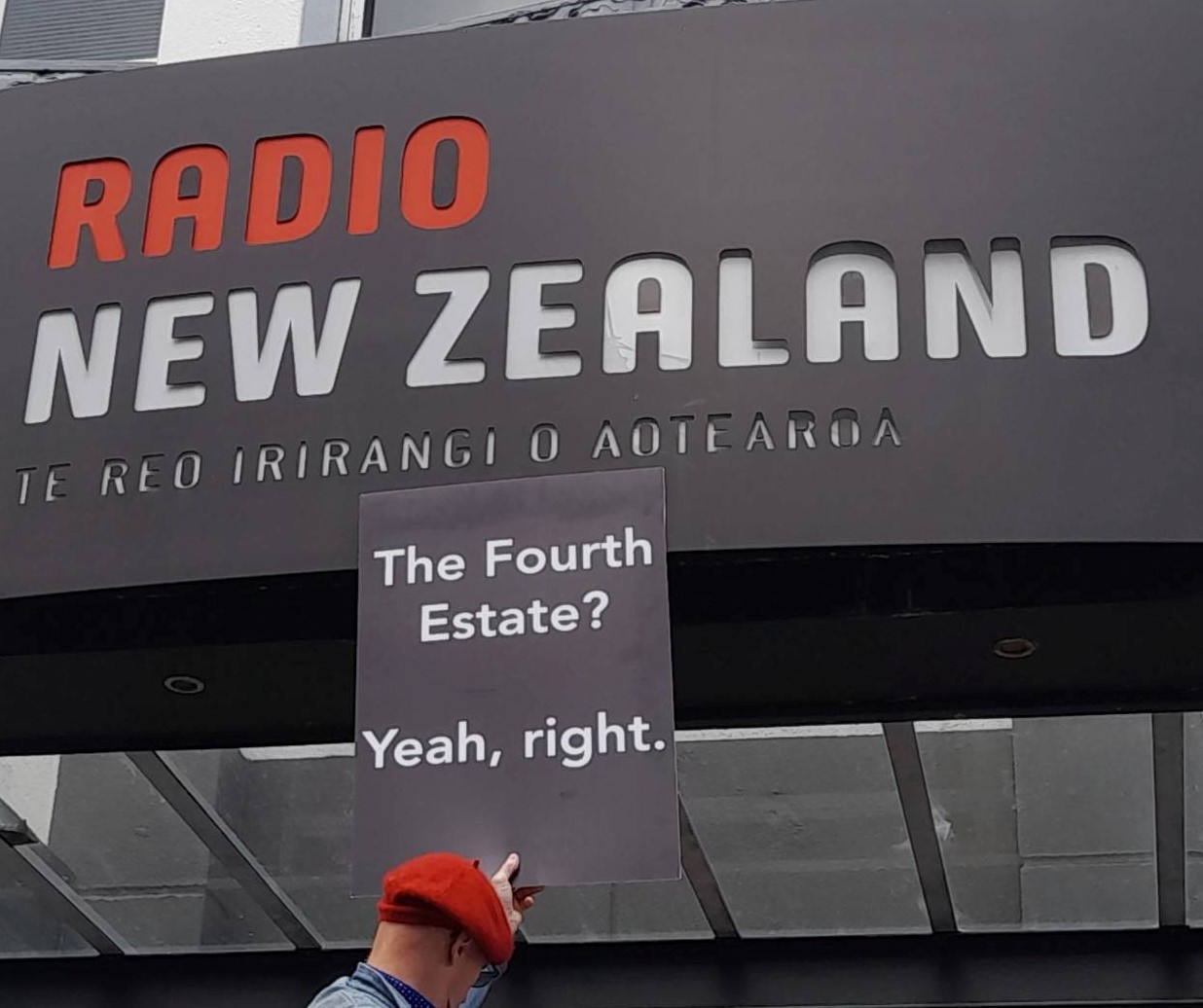OPINION
Mark Freeman
In the run-up to this year’s general election, “experts” are predicting the possibility of a violent attack—even an assassination—on a politician. The warning comes in Radio New Zealand’s recently-released podcast series Undercurrent: Misinformation in Aotearoa, in which presenter Susie Ferguson claims political violence is “a clear and present danger”.
The seven-part series looks at how people are drawn into conspiracy networks and how things can “escalate quickly with conspiracy theories and violent rhetoric”. Ms Ferguson interviews a number of carefully hand-picked people, including researchers, who reinforce the official narrative on the dangers of conspiracy theories.
The series’ general tenor is what we’ve come to expect à la Stuff Circuit’s Fire and Fury. It’s assumed that nearly all conspiracy theories are false and it’s openly stated that some conspiracy theorists are a serious, violent threat to our politicians.
The episodes present a number of interesting insights, but they fall short of RNZ’s and the Media Council’s standards of accuracy, fairness and balance (although it’s highly unlikely that RNZ and the Media Council will acknowledge that). Like most government-sponsored propaganda, the series mixes facts with half-truths, misinterpretations and missing context. In more than three hours of programming, a few ex-conspiracy theorists tell their stories, but not one conspiracy theorist/realist is interviewed—even though the immense damage done to people’s livelihoods and lives by the government’s vaccine mandates is an essential part of the background to this story.
In the last three years we’ve become accustomed to seeing online information that counters the official narrative being “fact-checked” by globalist- and government-funded organisations helpfully trying to steer us away from wrong-think. Let’s do some of our own fact-checking of a few of the podcast’s claims.
Claim: “Hundreds of thousands of New Zealanders are exposed to mis- and disinformation every day. Much of it’s connected across a large complex network.”
The ruling: Misleading
While unverified and inaccurate information is posted on social media channels such as Telegram, much of the information shared turns out to be accurate. A much greater concern, though, is millions of New Zealanders being exposed daily to disinformation from powerful state-funded news outlets which tell us, for example, that our country’s recent excess death rates are normal and there is nothing to be concerned about.
Claim: “[Women’s rights advocate Posie Parker] had intended to speak at an event in Auckland but cancelled after counter-protesters outnumbered her supporters. Days of angry, violent online rhetoric surrounded the event before and afterwards.”
The ruling: Context missing
This claim conveniently omits the actual physical violence that was (allegedly) inflicted on Parker and a number of her supporters at the event itself.
Claim: The vaccine mandates ended soon after the occupation of Parliament, but “the fury they evoked persists…So even though the mandates are long gone, their legacy continues to be part of the social glue holding groups together.”
The ruling: Mostly true. The mandates jolted many people awake to the corruption of New Zealand’s political system and made them aware of many other issues. They also spurred them to connect with other like-minded people. However, how many people are still furious, as opposed to simply angry, is unknown—and Ms Ferguson does not quantify it.
Finally, there is the most dramatic claim of the series:
Claim: Because some people have been radicalised to violent extremism, there’s a real risk of imminent political violence, even a political assassination.
“I’ve had ministerial colleagues tell me that they just can’t go out any more in public at all because when they do invariably they’ll have somebody bowl up to them being abusive and stopping them from going about their business. I think it’s a fairly short jump from there to physical assault.”
–Greens co-leader James Shaw (who was assaulted by a man talking about the United Nations while Mr Shaw was walking to work in 2019).
“I will be very thankful but very surprised if we get through this year, being election year, without someone getting seriously hurt or worse.”
–Tina Ngata, indigenous human rights activist
“People are being whipped into a frenzy and there is rhetoric of acceleration and all of those are designed to find a home in the brain of somebody who will then operate it. … And we will see somebody hurt. … And it’ll be a situation quite similar to the Christchurch terrorist where it will be somebody who has been on the periphery of these movements for quite some time and who is preparing and waiting and will find their moment.”
–Kate Hannah, director of the Disinformation Project
Ruling: Misleading/unverified
For this claim, a number of disparate events – the 2016 murder of British MP Jo Cox, the 2019 Christchurch mosque massacre, the assault on James Shaw, MPs currently being harangued and threatened by irate constituents and angry present-day online rhetoric – are provided as evidence to support the possibility of imminent serious political violence in New Zealand. Of course, anything is possible, but this warning is a stretch. It smacks of fear-mongering in order to justify stronger government security measures leading to further loss of citizens’ freedoms.
Ironically, Ms Ferguson unwittingly alludes to the nature of mainstream media disinformation in New Zealand when she talks about political parties’ propaganda – but you have to substitute “government- and corporate-funded media” when you read “politics” and “political advertising”.
“Politics [read: Government- and corporate-funded media] has always been full of stuff that could plausibly be described as fake news or misinformation. … The political advertising you see online [read: Government- and corporate-funded media] only ever offers a fraction of whatever story you’re being asked to believe.”
RNZ experienced a steep decline (14.5%) in public trust in its news between 2020 and 2023, indicating that many of its listeners have discerned RNZ’s role in promoting Covid-response-related disinformation. One way for the network to recover that lost trust from the public would be to start taking its commitment to the principles of accuracy, fairness and balance more seriously.

